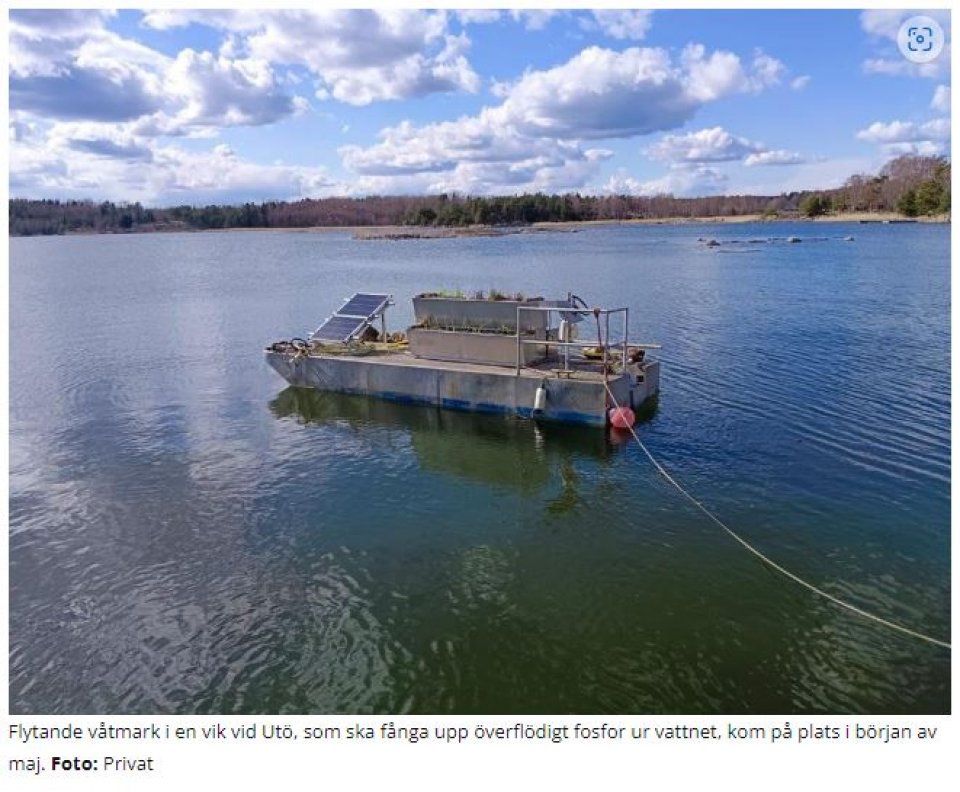
Since 2015, Initiative Utö has been tirelessly working to save the Baltic Sea with the primary objective to combat algal blooms and foster a thriving fish population in the Baltic Sea. In May the project was taken to the next level when the unique floating wetland was launched as part of our ongoing programme on nature-based solutions in the Nordics. The project has gained significant recognition and was recently featured in the local newspaper, LOKALTIDNINGEN MITT I STOCKHOLM AB.
The article highlights the remarkable findings from the laboratory tests conducted at KTH Royal Institute of Technology before the project's official launch. The results were astounding 90 percent reduction in nutrients and a 50 percent decrease in phosphorus content in the water.
- If we can also get those results on site, that is very good. For the Baltic Sea’s condition is critical and there is almost no acid. But if we can get rid of phosphorus both on the surface and on the bottom, we think it will become more acid, which in turn can lead to less algal blooms and more fish. I don't know how long it will take before we should be able to be there, but the main point is that the water quality in the Baltic Sea will improve, says Zeynep Cetecioglu-Gurol, project leader.
The project is carried out by Initiativ Utö together with researchers at KTH and received financial support from the Nordic Council of Ministers' programme, Nature-based solutions in the Nordic region.
Read the article (in Swedish) here: https://lnkd.in/ebDc-wG7
